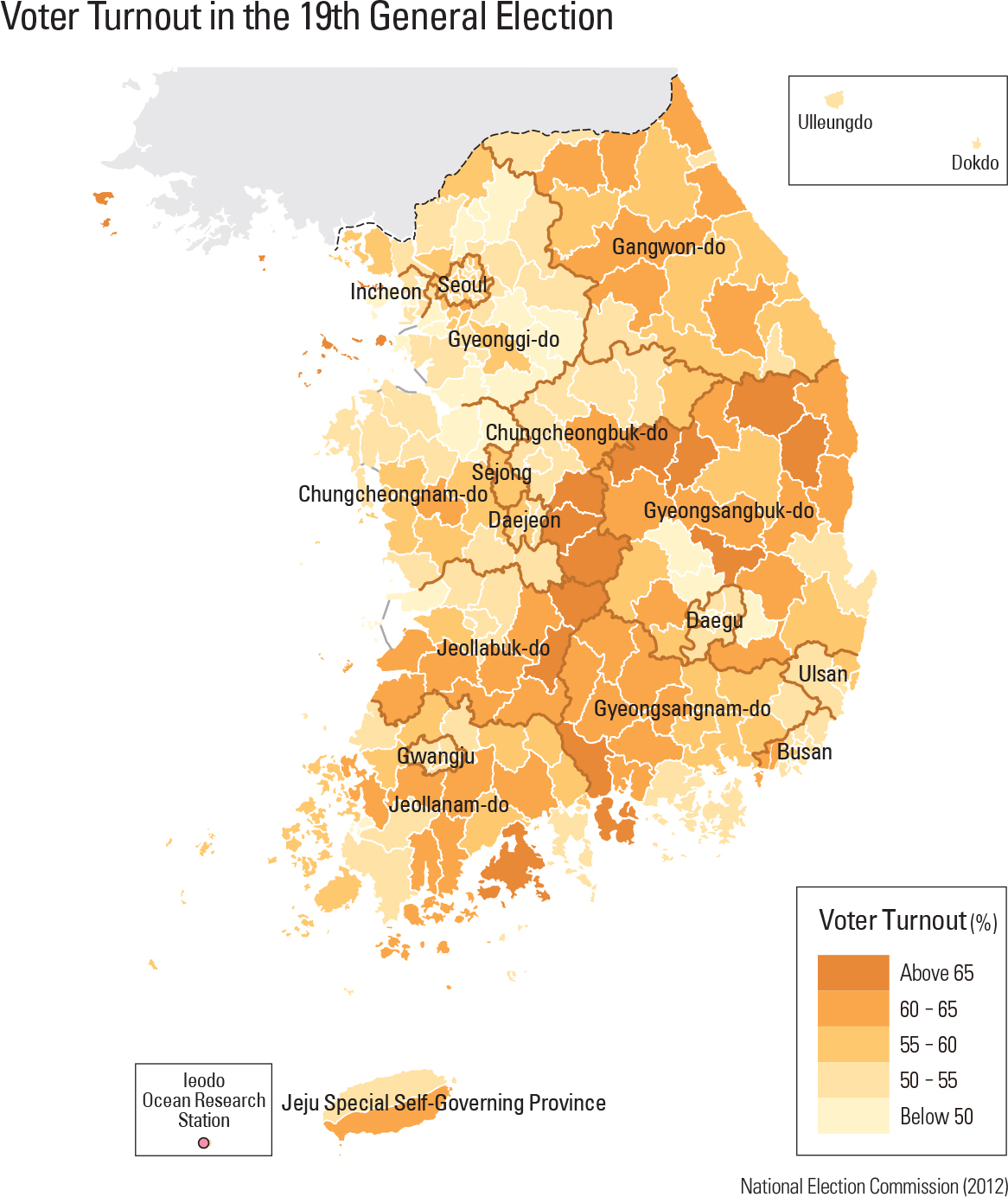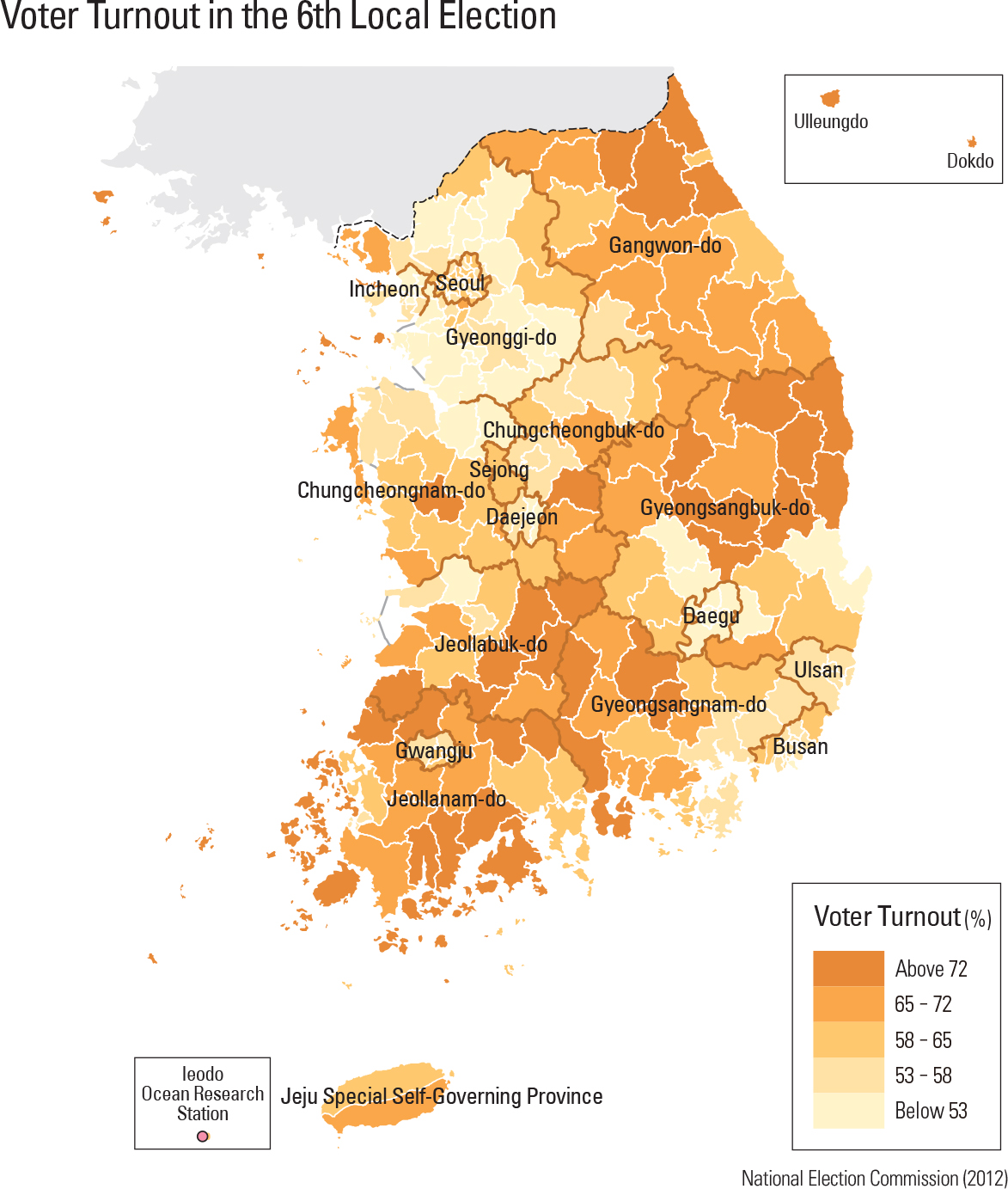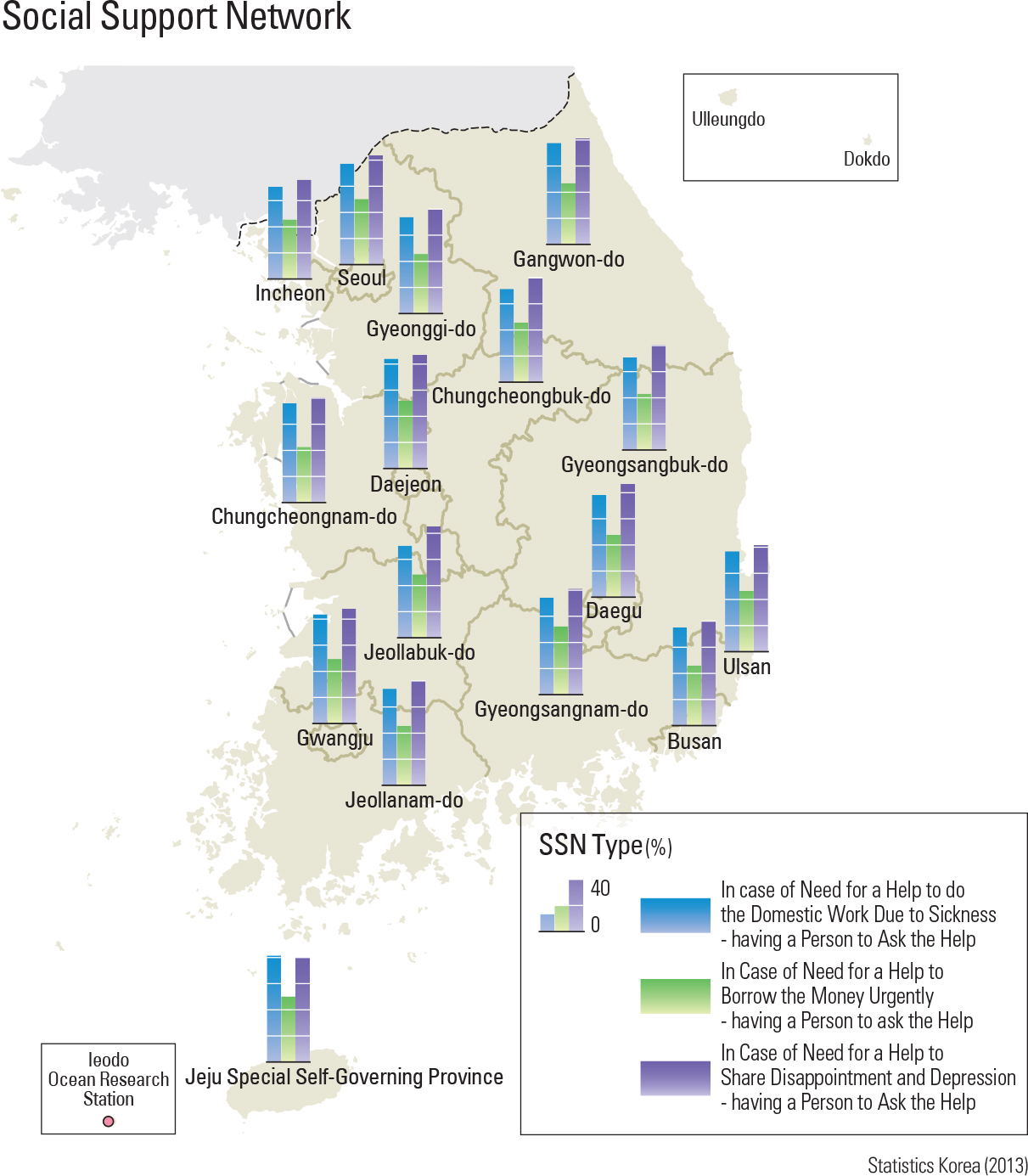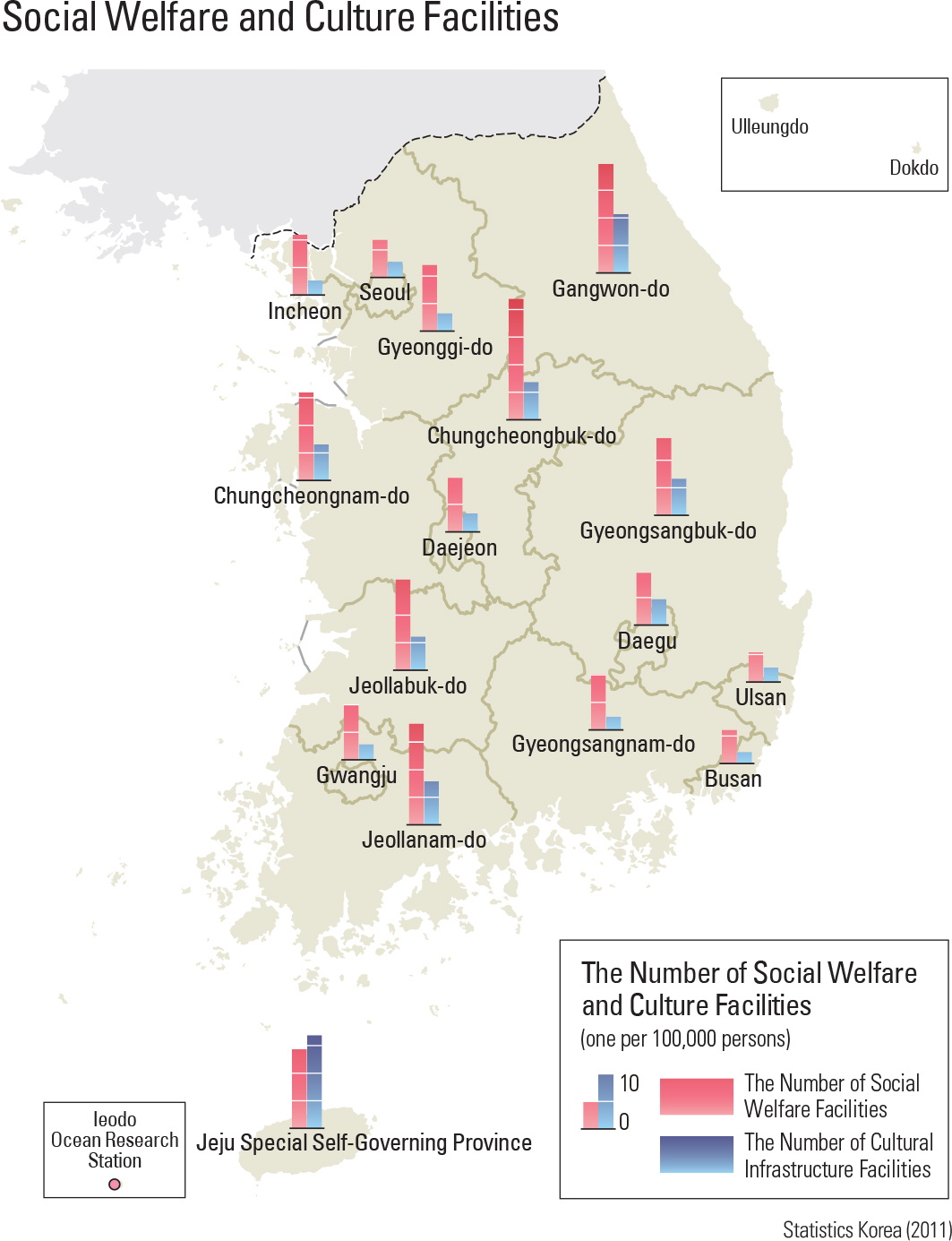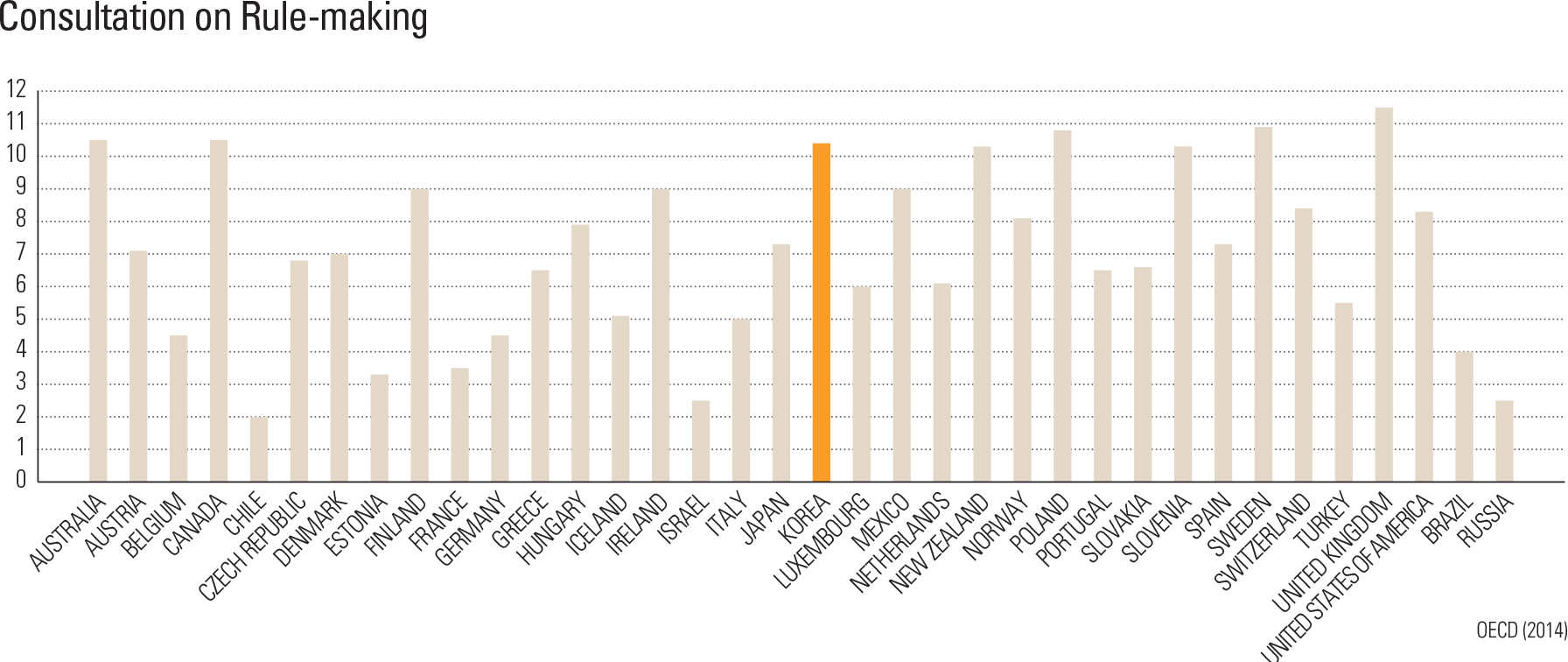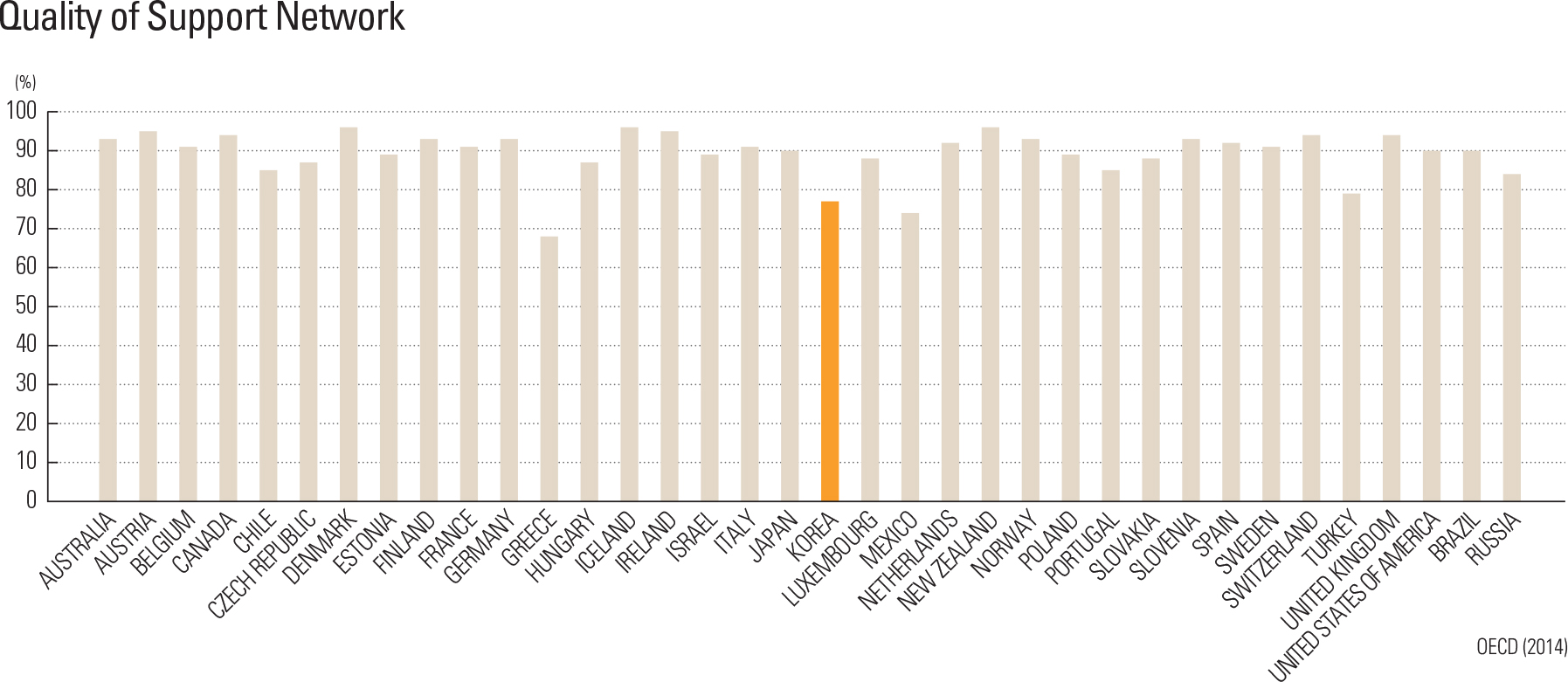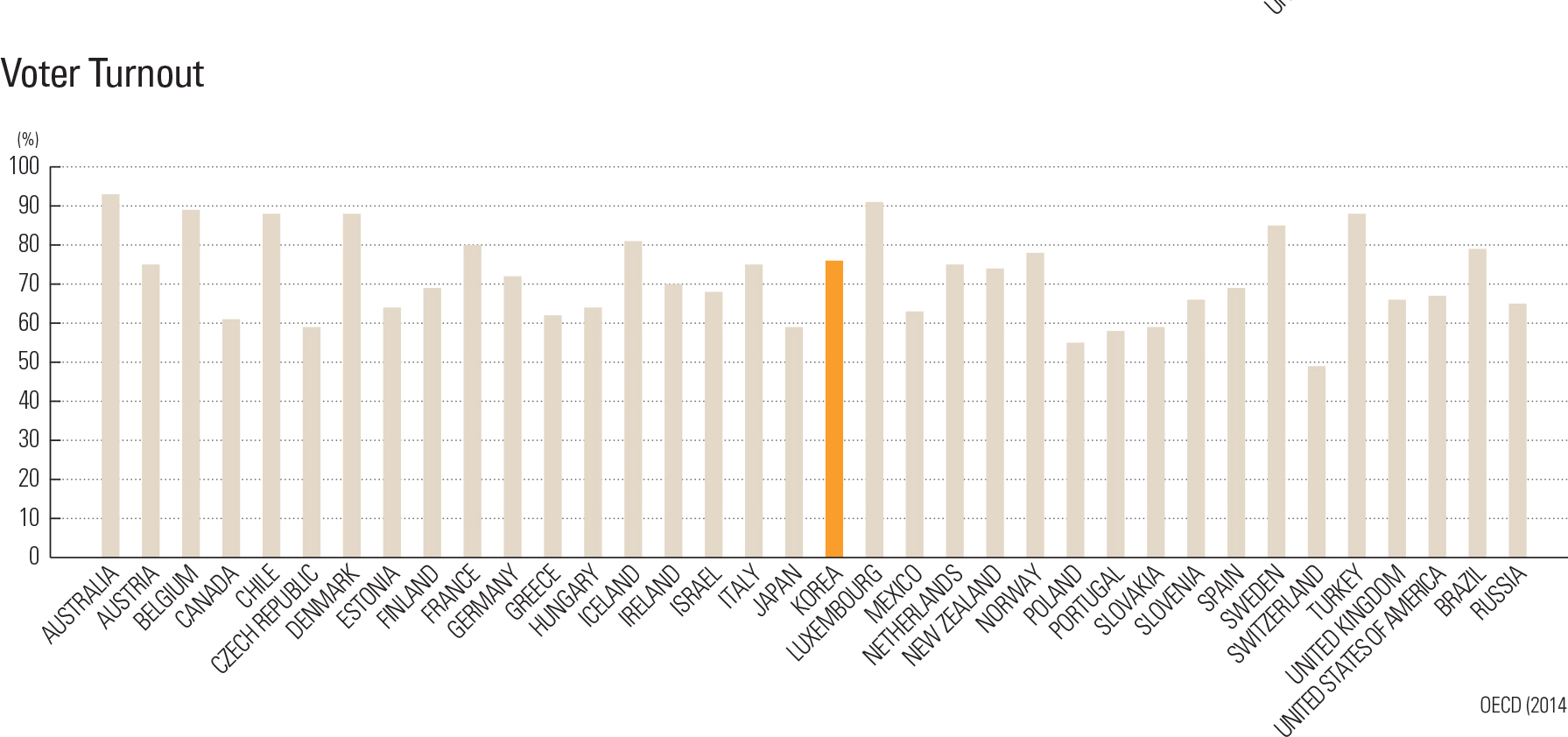Through social participation, citizens measure the current standards of quality of life of themselves and the overall quality of life of the society that they belong to. It also allows them to search for ways to improve their quality of life and to monitor their fulfillment. The tradition of active social participation of individuals and groups in a civil society is at the root of democracy and allows for a deeper sense of belonging and greater healthiness and resiliency.
Social participation may take different forms. The most representative of these is participation in social decision making primarily through voting in both elections at the central government level, presidential elections and parliament elections, as well as those occurring at the local level. Voter turnout has trended downward from the 1945 Liberation up to the present, which suggests that increasing citizen participation in the political process should be a high priority. Active participation in politics is an important way to improve the quality of life. Individual social support networks and access to social welfare facilities and cultural facilities are also important to the evaluation of the quality of life.

